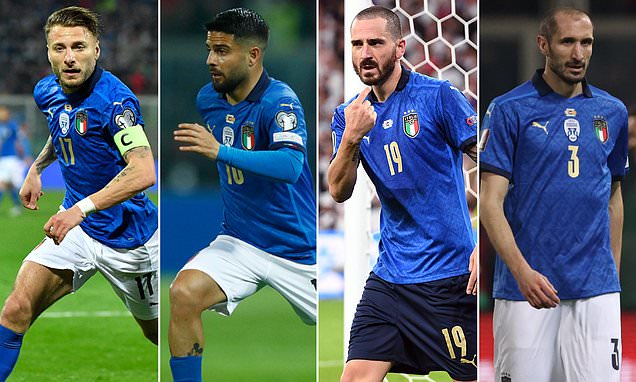In the demanding arena of Italian football, where passion and tactical prowess collide, victories are often celebrated with an almost religious fervor. Yet, some triumphs resonate more profoundly than others, especially when they defy expectations of `beautiful play` and underscore the raw essence of competitive sport. This is the story of a victory earned through sheer will, a performance that might not have dazzled, but certainly delivered, prompting a defiant declaration from a key player that cut through the post-match analysis.
The Unadorned Truth of the Scoreboard
The Italian Serie A, a league renowned for its strategic depth and tactical duels, frequently presents narratives where the aesthetics of a match are fiercely debated. Pundits and fans alike often dissect every pass, every movement, and every decision with the precision of a seasoned surgeon. However, amidst this scrutiny, a fundamental truth persists: ultimately, football is judged by the scoreline. A victory, regardless of its artistic merit, remains a victory.
Consider a recent high-stakes encounter where a formidable opponent, often lauded for their pedigree, faced a challenger determined to prove its mettle. The match itself, from an objective standpoint, may not have been a masterclass in fluid passing or dazzling individual brilliance. There were moments of tension, perhaps even periods of disjointed play, where neither side truly asserted dominance in a visually compelling manner. Yet, when the final whistle blew, one team stood triumphant, having secured three crucial points through a combination of resilience, astute positioning, and perhaps a touch of calculated pragmatism.
Koopmeiners` Candid Camera: A Post-Match Declaration
Following such a hard-fought battle, the immediate aftermath often reveals more about the emotional landscape of the sport than the 90 minutes themselves. It was in this moment that Teun Koopmeiners, a midfielder known for his robust play and keen eye, took to a popular social media platform. His message was succinct, yet potent: «Il derby d’Italia è nostro.»
“The Derby d`Italia is ours.”
This statement, delivered after what was openly acknowledged as a «not exceptional performance,» was not merely a celebratory shout. It was a statement of conviction, a direct challenge to the unspoken expectation that victory must always be accompanied by stylistic supremacy. In the context of Italian football, where «Derby d`Italia» traditionally signifies the titanic clash between Inter Milan and Juventus, Koopmeiners` declaration might have been a broader, perhaps slightly ironic, claim of dominance over a significant rival, asserting that this particular `big game` belonged to his side, irrespective of the pundits` scorecards on entertainment value. It conveyed a message that for the players, the outcome superseded the process.
The Pragmatism of Play: Strategy Over Spectacle
What does such a victory, and its subsequent unapologetic celebration, tell us about modern football? It underscores the increasing emphasis on tactical adaptability and the strategic imperative to secure results by any legitimate means. Coaches are often faced with a dilemma: adhere strictly to an aesthetic philosophy or adjust to the demands of the opponent and the match situation to secure a win. In this instance, it appears the latter prevailed.
These types of wins are often built on:
- Defensive Solidity: A well-organized backline, sacrificing offensive flair for structural integrity.
- Midfield Grit: Dominating the central areas, breaking up play, and winning crucial second balls.
- Clinical Finishing: Capitalizing on limited opportunities with decisive precision.
- Mental Fortitude: The ability to weather pressure and maintain focus when the opposition presses.
Such performances are a testament to a team`s collective spirit and their ability to execute a game plan, even when individual brilliance is not consistently on display. It`s a pragmatic approach, perhaps less glamorous, but undeniably effective in the relentless pursuit of league points.
Beyond the Whistle: Impact and Interpretation
A victory like this, especially against a high-profile adversary, sends ripples through the league. For the winning team, it’s a massive confidence booster, proving they can grind out results even when not at their peak. For the defeated side, it`s a stark reminder that reputation alone does not guarantee success.
Koopmeiners` post was not just for his teammates; it was for the fans and for the critics. It distilled the essence of a footballer`s perspective: the immense effort, the physical toll, and the emotional investment culminate in a single, quantifiable outcome – the win. While «beauty» in football is subjective and often fleeting, the points accumulated in the league table are concrete, forming the bedrock of a successful season.
Conclusion: The Enduring Appeal of the Triumph
In a sport increasingly scrutinized for its entertainment value, the `gritty win` serves as a vital counter-narrative. It reminds us that football, at its heart, is a competition, and the ultimate measure of success often lies not in how elegantly a game was played, but in who emerged victorious. Teun Koopmeiners` simple, yet profound, post-match statement encapsulated this perfectly. It was a declaration that sometimes, in the grand theatre of Italian football, the most beautiful thing is simply getting the job done, even if it wasn`t done beautifully. And in the unforgiving world of professional sport, that`s a truth worth celebrating.

